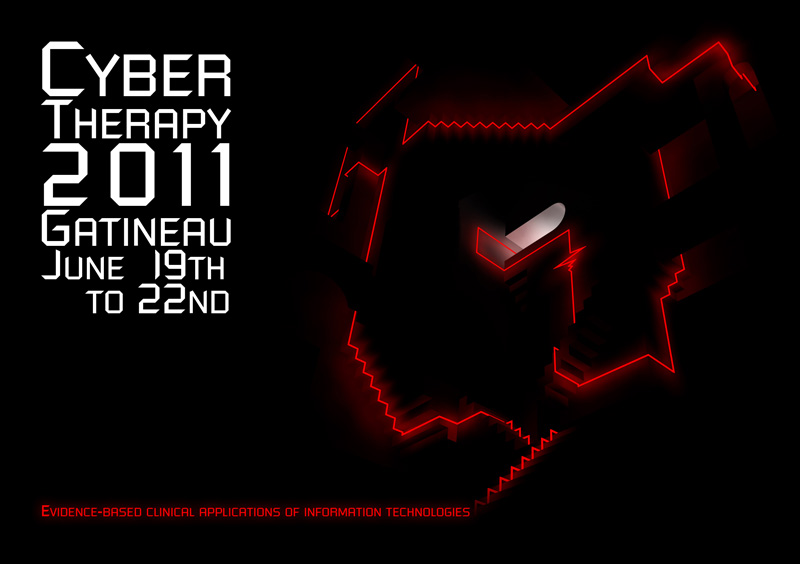Psychological therapies just like their medical counterparts evolve over time & obviously adapt and mingle with modern technological trends. Once the initial critics were overcome, Psychoanalysis has grown & learned to become one of the trending therapies of our time.
So just like the human being is malleable (with its own limits) we’ve arrived to our “high-tech” XXI century packed with “internet of things” and “augmented realities everywhere”, how does this translate into Psychology?

You may have noticed how neuroscience has evolved to the point of decoding each and every corner of the brain and tracing without big obstacles its anomalies. They enrich our knowledge and help redefine the per-stablished classifications. But in the same way these new tools & modern tracking techniques are constantly improved (scanners, Magnetic resonance Imaging…) bringing clearer pictures and images of our most important muscle they haven’t managed to substitute clinical psychology. They’re complementary.
Videogames on the other hand have been a health issue matter for too long. For a significant number of people video games have traditionally been a problem in themselves… addictive, hyperactivity & epilepsy related issues… origin of new mental pathologies? The infamous Jack Thompson , now disbarred, has built big part of his career and reputation on the negative effects of evil video games. Strong & exciting debates which have been going on for several years now between defenders and detractors.
We’re apparently talking about two diametrically opposed things. Psychology is for video games what these are to Psychology… nothing. But we shouldn’t judge by our preconceptions. Beyond the cyber-addictions on which we should have a long discussion so we can clarify and classify in relation to existing syndromes and disorders, what’s the added value video games could bring to modern therapies?
A question that scientists have been asking themselves for several years now. Amongst the pioneers we find the University of Quebec en Outaouais (UQO) research team who’ve been studying cyber-psychology for quite a while now. The system developed by this team has reached a high level of success specially when treating phobias.
Everyone knows this high level of handicap when a subject develops a debilitating panic highly linked with a previous experience. As a result of such experience the individual will try to develop a strategy of avoidance of such object causing the phobia while trying to control the symptoms of panic that it generates. And what can cyber therapy do for this?
(since 2008 UQO’s “PSYCHÉ” is leading the cyber treatments)
A simple principle: re-educate the patient by confronting a situation that usually overflows his defenses through a video game (a bit macabre right?). A phobia leads to a panick attack when facing that object-anxiety, but cyber therapy has two advantajes over any other type of therapy:
– The object is represented will full detail to the patient, not trying to abstractly recall it as on a “classical” therapy but to confrot it. – While present, the object stays virtual, removing the danger it represents… a virtual snake won’t bite just like a simulated flight crash won’t kill us.
Desensitization is carried out in a quasi-real condition or at least in an almost perfectly simulated stressful situation. In contrast to psychoanalysis which focuses on the trigger event, cyber-therapy seems closer to the cognitive behavioral therapy whose purpose is to change the problematic behavior.

And outside the purely therapeutic benefits, we shall also mention the reduced costs of such treatment. It allows a greater exchange of results with the simplicity of a gaming console, a computer and a HMD. But the work initiated by UQO were followed by many other universities, researchers and laboratories. For phobias and anxiety cases this new approach was found to be essential when treating disorders, however, many other problems have attracted the interest of researchers in cyber psychology. This is the case of Parkinson,the neurodegenerative disease that damages the central nervous system; being tremor the most notable symptom. These motor disturbances naturally generate enormous difficulties in moving individuals. In this case, cyber treatments allow the subject to reclaim his movements by virtually apprehending the space and its hazards (obstacles…).
Virtual reality is also useful for practitioners willing to test the evolution of neurological deterioration inherent to this disease. The program evaluates the memory and organizational abilities of the subject with a game. A shopping list is distributed virtually to the patient who has to successfully shop at the virtual supermarket. Here we have found a program that can be used not only to test & analyze but which also represents a therapist tool.
So is cyber psychology the future of psychopathology treatment? Not necessarily in such terms, and as it usually happens with other types of pathology treatments, generalization is always risky. However, we can already say that this type of treatment is a contemporary adapted version of previous successful therapies. It offers interesting healing perspectives, allowing both the detection, control and rehabilitation of neurological diseases and common phobias.
All in all therapeutic video games are as good as an ersatz reality… but without the dangers. Considering this treatment as the only way forward brings back the old debate between the different schools of psychology. Let’s not forget that the interest of this science and the success of its treatments is based in the multiplicity not only of the mental illness causes (neurological, subjective…) but also of its therapeutic treatments.













